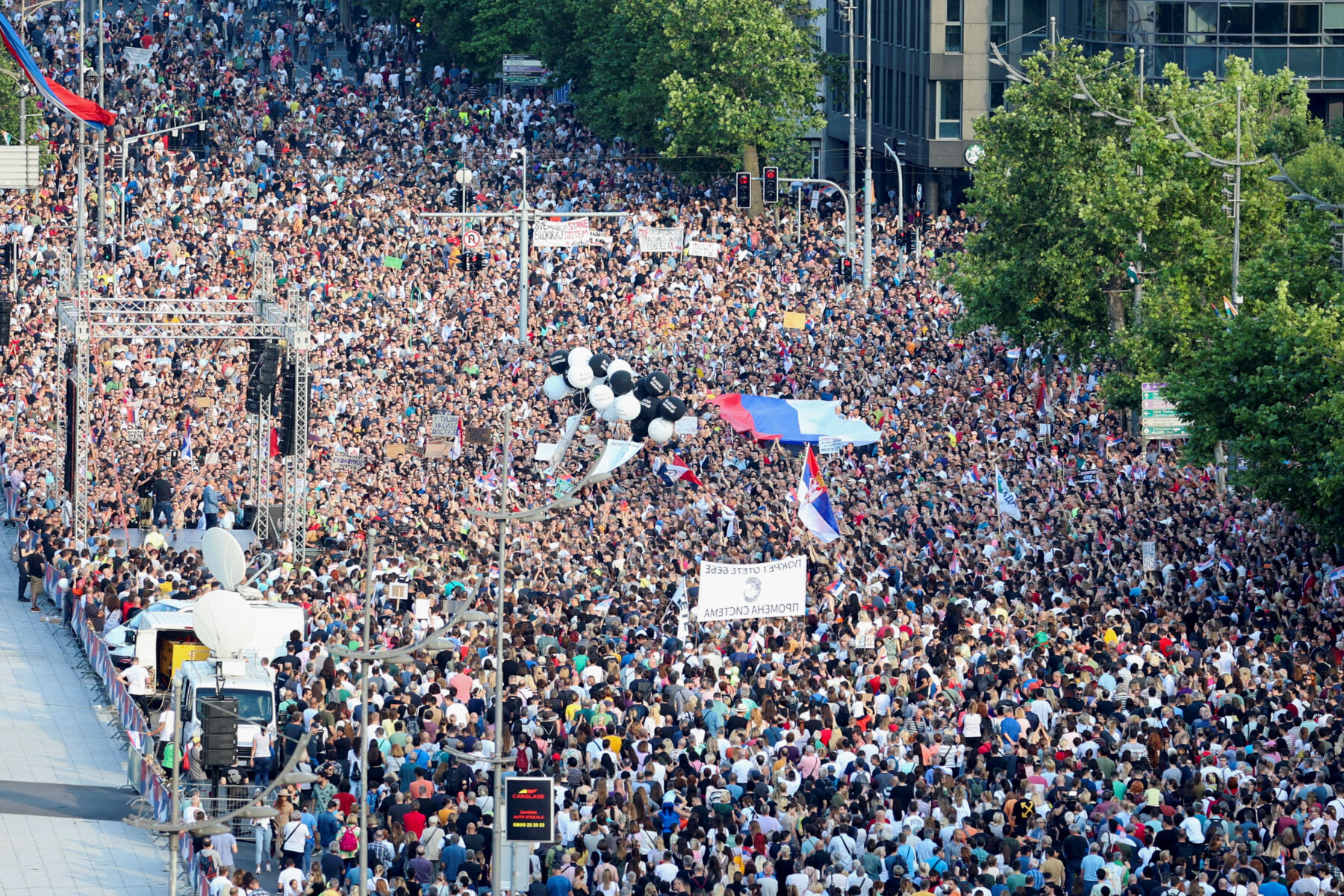Serbians demand interior minister resignation amid anti-violence protests

A wave of anti-government sentiment has swept through Serbia, with tens of thousands of citizens taking to the streets in Belgrade for the sixth time since May 3. This public outcry has been fueled by a perceived culture of violence, which many believe is responsible for the deaths of 18 individuals in two mass shootings. The protesters are calling for the resignation of the interior minister and are demanding action against criminal groups.
The protesters gathered in front of the parliament, chanting for Serbian President Aleksandar Vucic to step down and holding banners reading “Students against violence.” They then marched to the government building, voicing their demands for change. The Serbian capital, along with other cities, has seen a surge in mass demonstrations since the two deadly shooting rampages in early May, which left 18 dead and 20 others wounded, including elementary school pupils.
Protesters have called for the resignation of Serbia’s interior minister, Bratislav Gasic, and secret service chief Aleksandar Vulin, accusing them of failing to bring criminal groups to justice. “We cannot return the lives to the victims, but we can make sure that this doesn’t happen again,” actor Milan Maric told the crowd. “We want Serbia without violence, Serbia with hope.”
In addition to the resignations, demonstrators are demanding the withdrawal of national broadcast licences for television channels Pink TV and Happy TV, as well as a ban on certain tabloids, which they believe promote violence. “I expect the protest to continue, because there is no other way,” said Milica, a protester. “I think, at one point, the government will have to give in, this is a large number of people and eventually they will have to give in to this pressure.”
Prime Minister Ana Brnabic has expressed her willingness to resign and has invited opposition parties, who have backed the protests, for dialogue. However, protest leaders have stated that they will not engage in discussions with the government until all their demands have been met. President Vucic has defended his government, stating, “Is the government to blame for crimes that happened? I cannot accept that.”
Despite being awash with military-grade weapons and ordnance in private hands due to a deeply entrenched gun culture and the wars of the 1990s, mass shootings in Serbia and the rest of the Western Balkans are a rare occurrence.
Latest Thailand News
Follow The Thaiger on Google News:


























